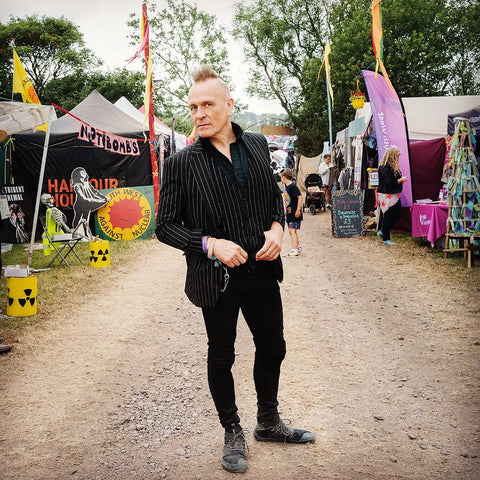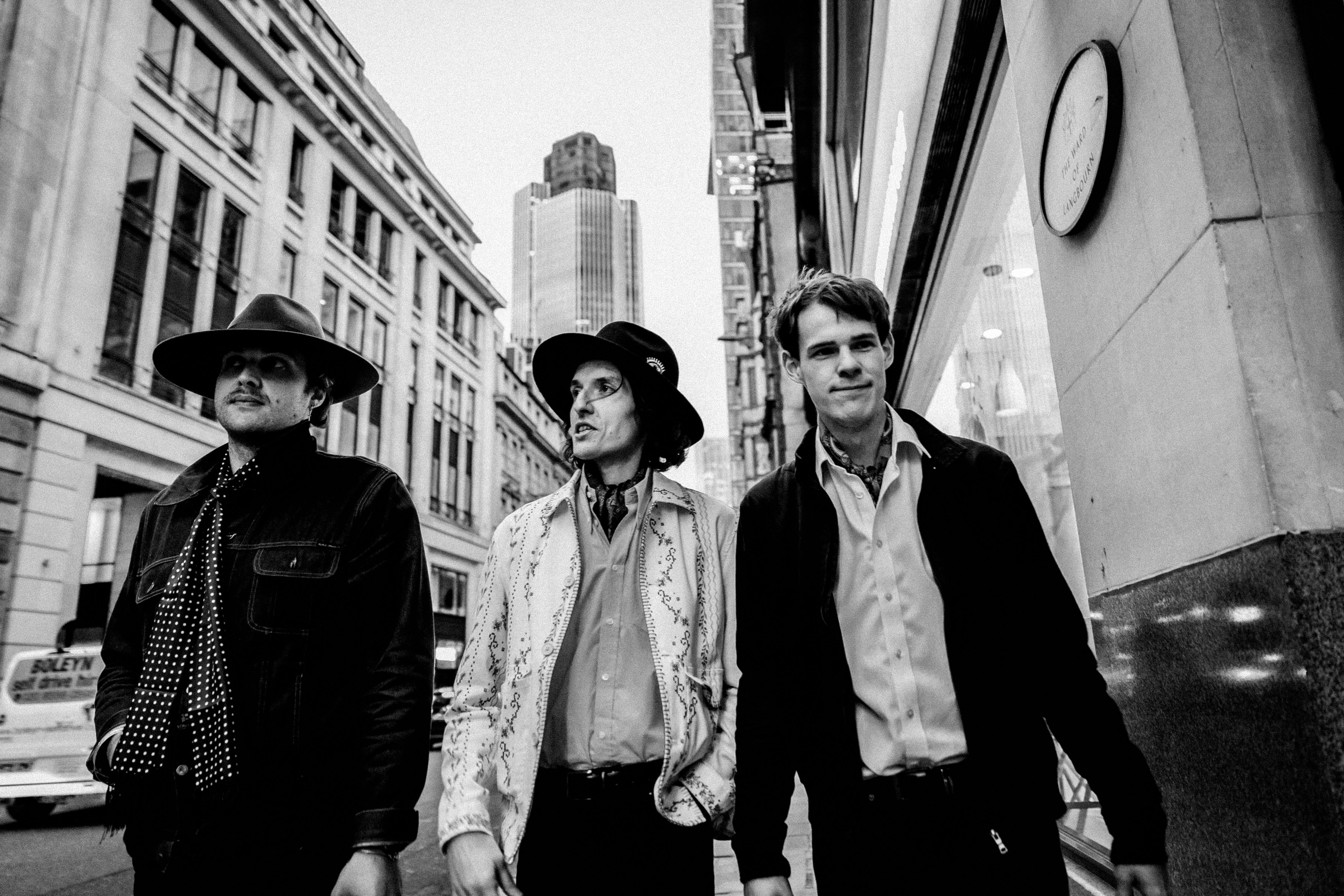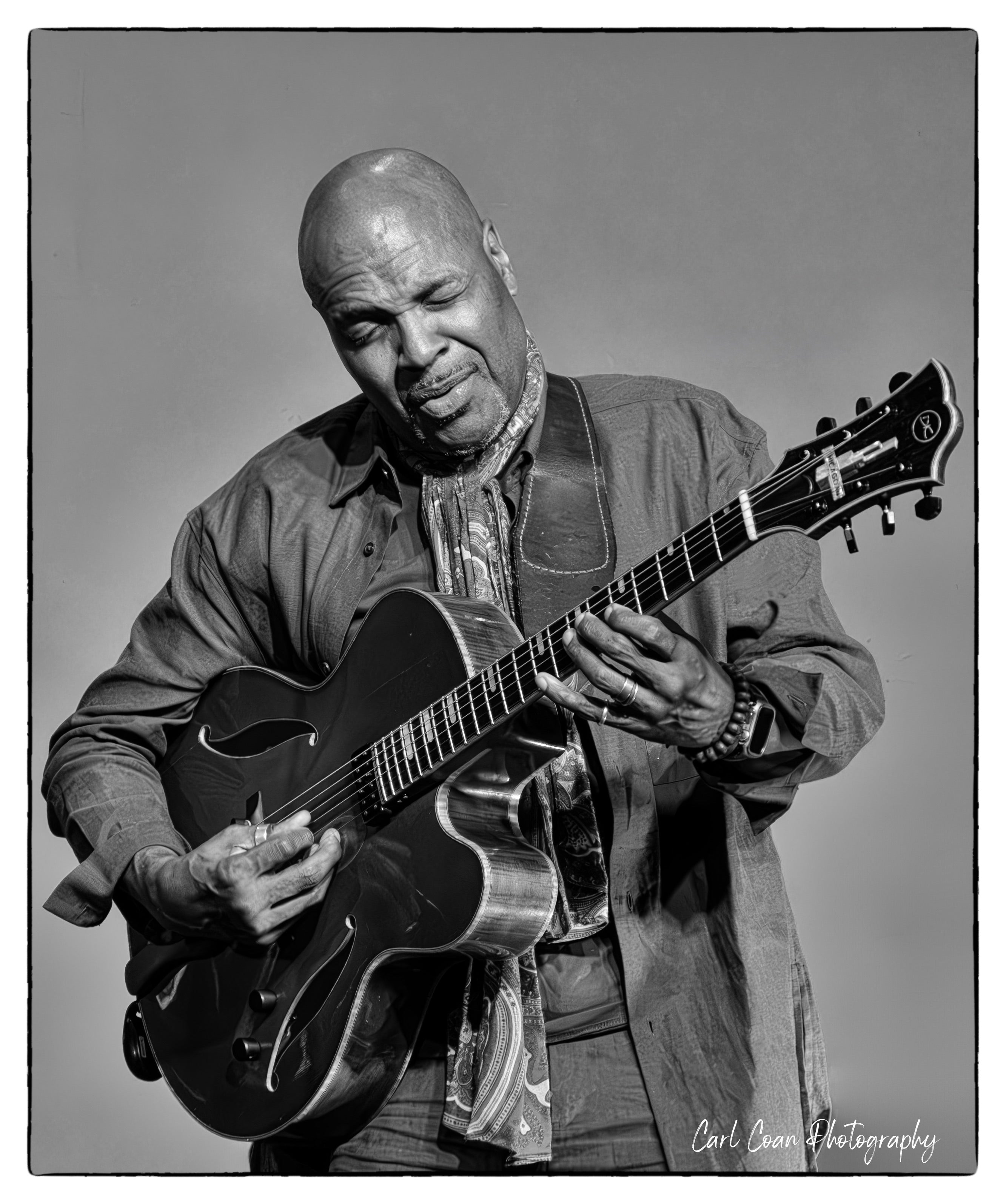Im Gespräch mit John Robb

In dieser Ausgabe hören wir vom Musiker, Autor und Journalisten John Robb. Am bekanntesten ist er als Bassist und Sänger der Post-Punk-Band The Membranes aus der Mitte der 1980er Jahre. John hat viele Bücher zum Thema Musik geschrieben, darunter „Punk Rock – An Oral History“, für das er derzeit schreibt und die Website Louder Than War betreibt.
Welche kulturellen Veränderungen haben Ihrer Meinung nach die Musiktrends des letzten Jahrzehnts beeinflusst und können Sie einen bestimmten Moment benennen, der eine bedeutende Veränderung markierte?
Es ist schon länger als ein Jahrzehnt her, aber der Schlüssel liegt im Internet und dem Einfluss der sozialen Medien. Es war ein schleichender Wandel, der aber alles verändert hat, und zwar auf unerwartete Weise. Anstatt die Welt komplett Science-Fiction und modern zu machen, bedeutet es, dass es einen Platz für alles gibt und alle Musikgenres und -stile, die aussterben oder ignoriert werden könnten, im 21. Jahrhundert ihren Anspruch geltend gemacht haben. Niemand dominiert mehr die Erzählung, die Kultur ist zerbrochen und die Menschen können aus den Trümmern eine Bricolage aus Klängen und Stilen herstellen! Wie alle Technologien und neuen Ideen hat es die Welt gleichzeitig besser und schlechter gemacht.

Was war Ihr überraschendster oder erhellendster Moment mit einem Musiker und wie hat das Ihre Sicht auf dessen Arbeit verändert?
Einfach auf die Bühne gehen und spielen! Punkrock-DIY war die wahre Revolution, denn es ermöglichte nervösen Kids, tatsächlich auf die Bühne zu gehen und zu spielen, obwohl sie keine Ahnung hatten, was sie taten. Als wir anfingen, konnten wir nicht einmal unsere Instrumente stimmen und hatten keine Ahnung, wie man Musik macht, aber wir haben es trotzdem gemacht. So viele meiner Zeitgenossen waren genauso … wenn man darüber nachdenkt, ist das ein erstaunlicher kultureller Wandel. Es gab einer ganzen Generation die Freiheit, kreativ zu sein.
Welche Auswirkungen hat Ihrer Meinung nach die Globalisierung auf die Musikindustrie? Verlieren wir dadurch unsere Identität?
Wir können gierig sein und beides gleichzeitig haben. In der Popkultur ging es schon immer um Globalisierung. Entweder man verkauft Großbritannien auf einer postimperialen Weltbühne als das coolste Land mit der sanften Kraft der Popkultur oder die Musik selbst ist ein Produkt der Globalisierung. Rock n Roll basiert auf der Black-Blues-Musik aus Amerika! Dieser Prozess hat sich beschleunigt und jetzt steht uns alles auf einmal zur Verfügung … was wirklich faszinierend ist, ist, dass wir das irgendwie mit unserer regionalen Denkweise filtern! Wir können lokal/international sein. Der Norden hat sich noch nie so nordisch angefühlt und dennoch sind der Soundtrack und die Stile, die an dem Fenster vorbeigehen, an dem ich gerade tippe, wirklich kontinental! Wirklich international!
Die Musikindustrie ist eine globale Industrie und der weltweite Fluss von Klängen und Ideen ist eine gute Sache!
Inwiefern verändern Ihrer Meinung nach Technologien wie KI und Streaming-Dienste die Musikindustrie und die Art und Weise, wie wir Musik konsumieren? Glauben Sie, dass es eine gute Veränderung ist?
Jede Veränderung ist gut und schlecht … das war schon immer so! So passen wir uns an Dinge an. Wir leben bereits in einer Welt der KI. Primitive KI! In Zukunft werden Arena-Konzerte wie KI-Rolling Stones sein, die klassische Songs aus klassischen Epochen spielen, und Sie werden denken, es sei echt, und die Band wird, abgesehen von Keef, schon lange tot sein. Es könnten alle klassischen Bands von den Sex Pistols bis zu Elvis oder sogar die Spice Girls sein, die riesige KI-Arena-Shows ohne Menschen auf der Bühne geben – ist das anders, als sich einen alten Film anzusehen? Die Unterwelt wird dann eine Welt „echter“ Musik sein, aber was ist „echt“? Sobald Sie die Musik verstärken oder Effekte hinzufügen, wird sie technisch gesehen zu KI!
Durch Streaming ist die gesamte Musikgeschichte aktuell geworden. Für Teenager sind The Doors genauso aktuell wie der neueste Hip-Hop.
Alles ist jetzt.
Die andere Zukunft ist natürlich Terminator 2, der ewige Roboterkrieg! Der Film wird in Zukunft als visionärer Film angesehen werden und nicht als Hollywood-Blockbuster…!
Glauben Sie, dass Künstler ihre Plattformen nutzen sollten, um soziale oder politische Bewegungen zu unterstützen oder zu kritisieren?
Ha! Es kommt darauf an, ob Sie mit dem, was sie sagen, einverstanden sind, nicht wahr?
Früher war das alles viel einfacher, als man noch davon ausging, dass alle auf derselben Seite stehen. Aber jetzt ist alles zersplittert und verschwommen, und viele der beliebtesten Künstler sind nicht die Art von Leuten, mit denen man gerne einen Schlitten teilt! Kid Rock hat das Recht, seine Pro-Trump-Lobby rauszuposaunen, aber will ich mir das anhören? Es hilft, dass ich keine Ahnung habe, wer er ist und wie er klingt, also kann ich es einfach ignorieren.
Letztendlich muss ein Künstler seiner Kunst folgen – wenn er über Blumen singen will, dann soll er mit der Muse reisen! Wenn er über die Veränderung der Welt singen will, dann soll er das auch tun. Manchmal sind deine Haare oder dein Schal (ha!) ein stärkeres politisches Statement als deine Texte, manchmal kann ein Joe Strummer die Welt trotzdem verändern … Kunst ist chaotisch, aber Politik ist chaotischer, aber eines ist dringend … wir müssen die Welt besser machen, ob wir das nun mit Popkultur tun oder nicht.
Welche Musikgenres oder kulturellen Bewegungen sind Ihrer Meinung nach in den Mainstream-Medien unterrepräsentiert und warum glauben Sie, dass sie mehr Aufmerksamkeit verdienen?
Alle Gitarrenmusik wird irgendwie an den Rand gedrängt. Es gibt immer noch die Vorstellung, dass man sie fürs Radio oder den Mainstream „verwässern“ muss? Doch wenn sie jemals gehört wird, nehmen die Leute sie an. Die Mainstream-Medien zerlegen die Popkultur in winzige Stücke … manchmal ist sie großartig wie bei Billie Eilish, aber oft ist sie nur heiße Luft.

Wie hat sich die Rolle des Musikjournalisten mit dem Aufkommen der sozialen Medien und der direkten Kommunikation zwischen Künstler und Fan verändert? Halten Sie das für eine positive oder eine negative Entwicklung?
Nicht unbedingt positiv oder negativ – es ist einfach anders. Das ganze Schlachtfeld hat sich verändert. Früher waren Musikautoren und bestimmte DJs Vermittler und Torwächter, aber jetzt sind die Bands ihre eigenen Medien, was die Rolle der Autoren verändert hat.
Früher waren Bands darauf angewiesen, dass die Presse sie ins Rampenlicht rückte, und das verlieh der Presse viel Macht … eine Macht, die oft missbraucht wurde, da sie versuchten, die Geschichte nach ihren eigenen Vorstellungen zu formen. Heutzutage gibt es keinen Filter mehr, sondern die Bands/Fans haben direkten Kontakt miteinander.
Die Facebook-Seiten größerer Bands sind größer als die Facebook-Seiten der meisten Medien. Die Musik ist überall auf Spotify und YouTube und jeder kann zuhören und sich seine eigene Meinung bilden. Das Problem ist, dass diese Demokratie in der Kunst so viel ZEUG hervorgebracht hat! Bands verlieren jetzt nicht, weil sie sich mit der Musikpresse überworfen haben, sondern weil sie in der Menge der anderen Bands untergegangen sind. Es ist eine andere Welt und eine andere Art, sich zurechtzufinden. Ein Autor kann jetzt immer noch alte und neue Musik ins Rampenlicht rücken, er kann immer noch Kontext zur Agenda hinzufügen und er kann auch Menschen wie Bands und das Musikgeschäft zusammenbringen und als Katalysatoren Dinge geschehen lassen, aber die Tage, in denen man (fälschlicherweise) dachte, sie wären größer als die Bands, sind vorbei … ein Autor kann in dieser neuen Rolle immer noch ein Spielveränderer sein und ironischerweise kann er zu einer Medienmarke werden, wie es die Bands geworden sind.
Wie wichtig ist es für zeitgenössische Künstler, in ihrer Arbeit traditionelle Musik und kulturelles Erbe zu bewahren, und können Sie Beispiele für Künstler nennen, denen dies gut gelingt?
Es ist toll, einer Band wie Lankum zuzuhören, wie sie traditionelle irische Musik und modernen Drone-Rock zu etwas Einzigartigem und Anderem mischt, aber es ist nicht die Aufgabe einer Band, ein Museum zu sein. Ein Musiker muss seiner Muse folgen und hat keine Verpflichtung gegenüber Kultur oder Erbe. Sie können die Vergangenheit brechen, die Vergangenheit ignorieren oder die Vergangenheit vernichten, und wenn es gut klingt, dann ist es gültig. Sie können auch in die Vergangenheit eintauchen und sich in ihren längst verlorenen Codes verfangen, und wenn ihnen das gelingt, dann ist das cool. Das ultimative Endergebnis ist ein fesselnder Klang und eine fesselnde Vision, denn es geht nicht nur um die Musik, oder? Die Kunstform ist genauso sehr das Aussehen wie das Geräusch, wie ehrwürdige Schalmacher nur zu gut wissen!

Welche Rolle spielen Musikfestivals bei der Gestaltung kultureller Trends und wie haben sie sich an die veränderte Dynamik der Musikindustrie angepasst?
Man muss sich nur den jährlichen Wirbel um Glastonbury ansehen, um zu sehen, wie wichtig Festivals für die Kultur sind. Auf diesem Niveau scheint jeder zu glauben, er hätte das Recht, lauthals zu sagen, was die Headliner-Band spielen soll, auch wenn er gar nicht die Absicht hat, hinzugehen! Festivals sind ein zentraler Bestandteil der Kultur.
Die Kultur ist nicht mehr so einfach wie in den Siebzigern, als es lange Tourneen, Anzeigen in der Musikpresse und Radiosendungen gab und dann „Top Of The Pops“ und die Charts.
Jetzt geht es darum, Streaming zu spielen, sich mit sozialen Medien auseinanderzusetzen, kleinere Veranstaltungsorte zu bereisen, von denen es mehr denn je gibt, die richtige Support-Tour zu bekommen und eine große Show für Arenen und Festivals zu kreieren. Festivals sind natürlich nicht die ganze Kultur … es gibt keinen dominierenden Sektor des Ganzen, der dominiert, aber sie sind ein wichtiger Teil des Spinnennetzes.
Und zum Schluss: Welche neuen Trends oder Bewegungen in Musik und Kultur werden Ihrer Meinung nach das nächste Jahrzehnt prägen und warum?
Szenen werden sich in Unterszenen aufspalten, Musik wird sich mischen und anpassen und funkeln. Sie wird immer noch Technologie einbeziehen und die Welt auf sich selbst zurückspiegeln. Jede Band, die jemals über einem bestimmten Niveau existierte, wird KI auf Tournee mit ihren klassischen Perioden schicken. Die Fans werden online darüber abstimmen, welche Perioden das sind, und die KI wird sich entsprechend anpassen. Unterdessen wird das, was jetzt der Indie-Underground ist, der kleine Prozentsatz von Musikfans sein, die nicht die KI-Version der größten Hits aus Hollywoodfilmen wollen, aber trotzdem Menschen sehen wollen, die nach etwas Musikalischem und Magischem greifen und es oft vermasseln.
In der Zwischenzeit wird es Musik geben, die alle neuen Technologien nutzt, aber es wird auch klassische und traditionelle Stile geben, wie etwa „Lad Bands“, die im Jahr 2024 immer noch ohne die Erlaubnis der Musikindustrie Nummer-eins-Alben landen … Es gibt Dinge wie Akkordwechsel und Arten, Musik zu machen, die immer Anklang finden werden.
Es wird immer mehr Frauen geben, die Musik machen und auch hinter den Kulissen für Live-Sound sorgen oder Bands herumfahren oder die ganze Show leiten und die gesamte Infrastruktur füllen. Die anglo-amerikanische Musikachse wird weiter abnehmen und Musik aus aller Welt wird sich wie eine Bladerunner-Straßenszene vermischen.
Amerika wird trotz seines Niedergangs eine kulturelle Hochburg bleiben. Großbritannien hat eine Chance, wenn es sich wieder mit Europa und dem Rest der Welt verbindet und die Tatsache feiert, dass wir dank unserer multikulturellen Städte großartige Popkultur schaffen. Das bedeutet allerdings, dass wir die Musik wieder in die Schulen bringen und Jugendliche jenseits der Mittelklassevororte dazu ermutigen müssen, Musik und Kunst zu machen. Wir müssen ihre kreativen Funken entzünden und uns dann von ihren Ergebnissen begeistern lassen …

Sie können ein signiertes Exemplar von Johns neuester Veröffentlichung The Art of Darkness: The History of Goth hier kaufen.


